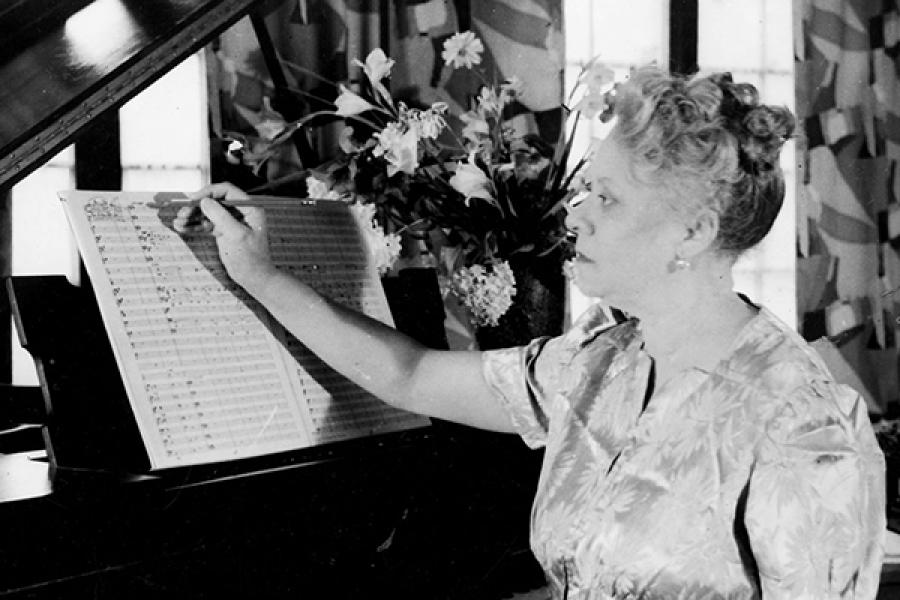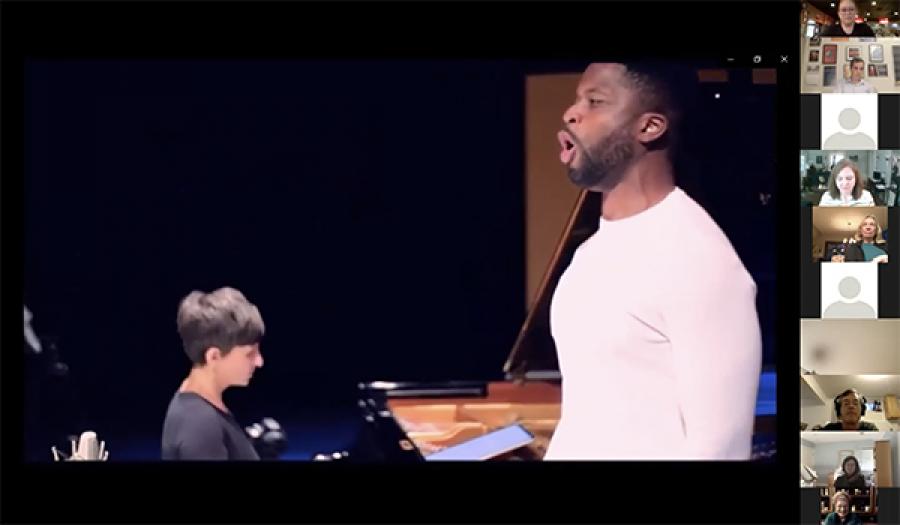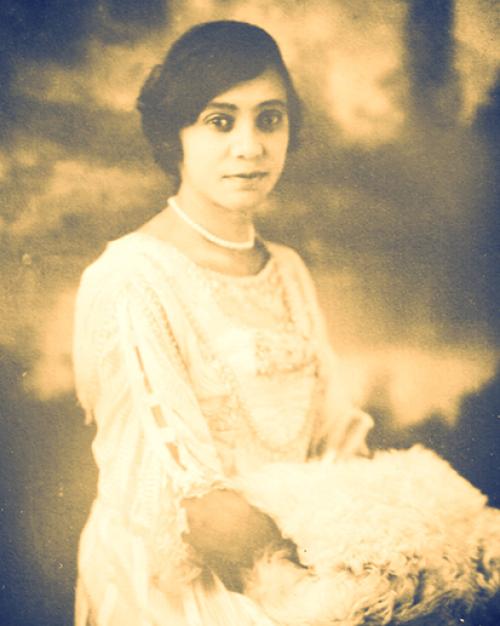What began more than a year ago as an effort to celebrate a somewhat unknown female Black composer has grown into a collaboration between Cornell’s choral faculty, a major orchestra and musicians and faculty from across the country, who are participating in a host of initiatives to honor the works of Florence Price.
Price attended the New England Conservatory of Music in 1904 and gained fame in 1933 for being the first Black female composer whose work was premiered by a major American orchestra, the Chicago Symphony.
“In her lifetime, there were so many factors against her both because of her race and her gender,” said Stephen Spinelli, the assistant director of choral programs at Cornell. “We read a letter she had written to the director of Tanglewood (Music Center, part of what they found in the Library of Congress) asking that he consider programming her music and talking about the challenges of being a female Black composer. She was fighting for an audience. She didn’t hear back.”
In 2019, Spinelli and voice faculty member Tamara Acosta began to plan for a celebration of Price’s life as part of their desire to bring to light the works of underrepresented composers. They both had heard of Price, but knew little about her vast repertoire of work until they started some intense research.
Their deep dive into her work brought forth the names of many other similar composers, making them realize this could be an ongoing initiative. Called ONEcomposer, the initiative will continue in subsequent years and is supported by the Central New York Humanities Corridor, Engaged Cornell, Cornell Council for the Arts, and The Society for the Humanities’ Rural Black Lives Initiative.
When they began planning their events centered on Price, COVID-19 wasn’t a factor, so their idea was to host an in-person conference this spring. But after the pandemic hit, they set about to plan this year’s curriculum for choral students and knew that singing in large groups was not an option. So, they reworked their conference on Price into a year-long study of her work, taking place through live-streamed performances and a virtual speaker series with leading Black artists.
“Price's relationship to Langston Hughes and Margaret Bonds and their dedication to continue creating art in the midst of Jim Crow, sexism and violence against Black bodies has been a source of joy and inspiration for me as a young Black man living in a similar America almost a century later,” said Allen Porterie ’20, who is serving as host for the speaker series. “Each guest of the speaker series brings such a wealth of knowledge and experience of performance that always elevates my own interest to continue pursuing my own passion of acting.”
Acosta, a visiting lecturer in voice, said she and Spinelli mainly knew of Price as a pianist. But through their research into various archives for information about her – which wasn’t easy to find – they learned that in fact, she was more of a celebrated organist who grew into a composer of works in multiple genres. To learn more about Price, the pair scoured university archives, obscure websites and blogs and the Library of Congress.
Price wrote symphonies, organ works, piano concertos, works for violin, arrangements of spirituals, art songs and chamber works. But there is limited access to her written compositions and a lack of a recording archive of her work, Spinelli said, which makes it challenging when groups want to perform her music but have limited resources to review.
Upcoming ONEcomposer events this semester include:
- Nov. 15, 4-5 p.m. EST: Anna Steppler Presents: Florence Price, The Organist, streaming performance.
- Nov. 16, 6-7 p.m. EST: Cornell Piano Studios Masterclass with Michelle Cann, virtual masterclass.
- Dec. 6, 4-5 p.m. EST: Interview with soprano and opera superstar Karen Slack.
- Dec. 13, 7:30-8:30 p.m. EST: "Hold Fast to Dreams": Florence Price's Life in Song , a semester-ending recital by Cornell University voice faculty and their studios featuring the song repertory of Florence Price.
- Next semester, there will be events on the first Sunday of every month, in addition to other musical offerings. Check the website for more information.
Others involved with the ONEcomposer project say the attention given to Price and other underrepresented composers could have lasting impacts.
“I grew up fighting this notion that Black music, especially music by Black women, wasn't proper, legitimate, or beautiful enough to be performed outside of the context of our nation's history,” said Simone Gatson ‘20, who is serving as webmaster for the project among other duties. “As a result I was also fighting the notion that I too, as a Black singer, wasn't proper or legitimate enough to perform the music I enjoyed and sing at as high a level as my white peers. If more music educators found the freedom, support, resources and encouragement to include diverse Black artists and composers in their classrooms more often and really believe in composers like Florence Price, I really think that that could make a very positive change in the experience of Black children in the arts, especially Black women and girls.”
Spinelli and Acosta don’t want the attention for Price to be limited to the Cornell campus or to only last for a year. They have been working with faculty at Ithaca College (where Acosta also teaches), as well as private music teachers in the Ithaca area to encourage them to assign pieces by Price. They are also collaborating with the Philadelphia Orchestra on a concert of her works in the spring.
Other ideas include the creation of a YouTube archive where musicians could upload their recordings of her work; a database of Price’s compositions categorized by difficulty and outreach to the New York State School Music Association to include Price in the catalog of songs in its solo and ensemble repertoire catalog for young musicians to play.






